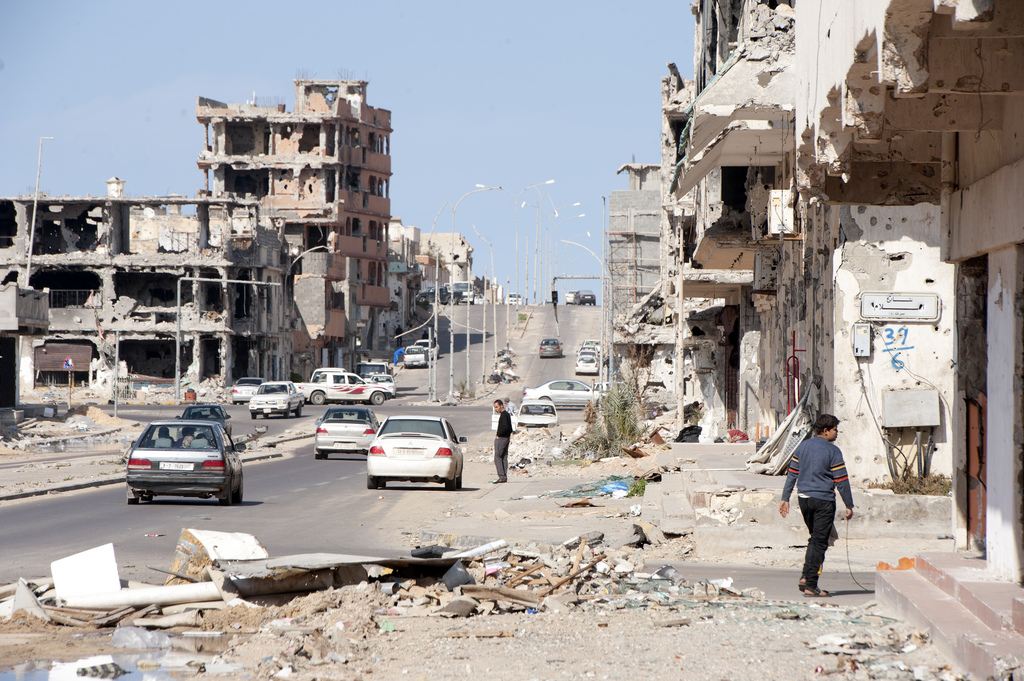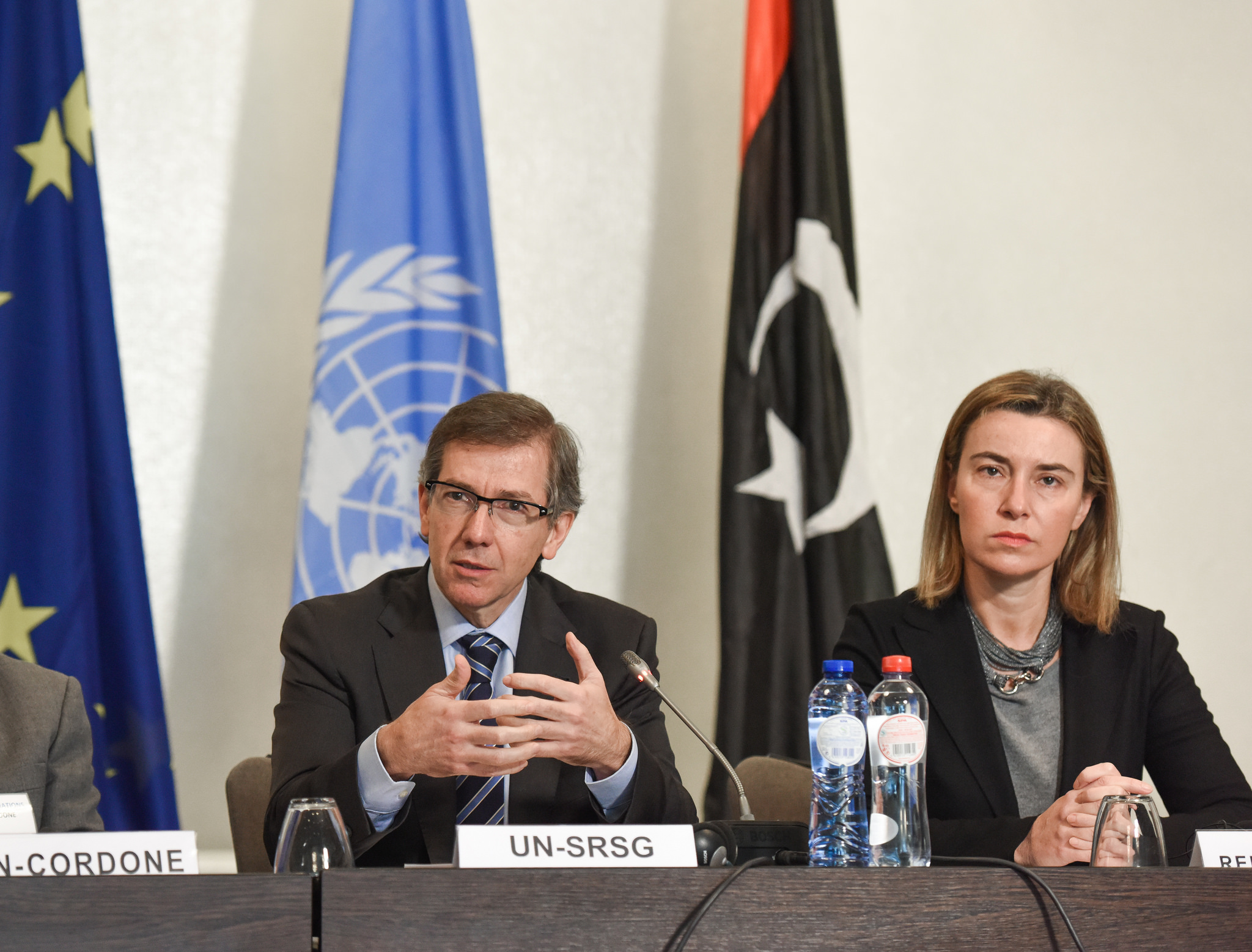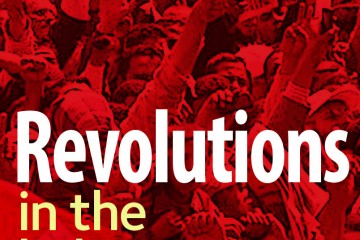
The Enemy Next Door? ISIL, Libya and Proto-State Actors
One more disaster in North Africa – News about the fall of Sirte to ISIL (Islamic State of Iraq and the Levant) has produced little reverberations across the Mediterranean. While there seems to be concerns about it, they are mostly about unrest happening “there” and, thus, fortress Europe can only force more measures to fortify itself and make sure that unrest remains where it is. Needless to say, anti-immigration debates continue to be loud, and are largely informed by a worldview at odds with itself, in which host communities are pitted against a deluge of immigrants – a burden on the economy and a marching in of an inflexible and alien culture. The reasoning is as follows: This is not “our” problem; it is “theirs”. The myopia of ownership and the shortsightedness of this view cannot be overstated. ISIL may be a short-term disaster but, more importantly, it is a long-term problem, and not only for North Africa.
The map of North Africa is rapidly changing and the unrest is not geographically bound – To begin with, it is believed that many of the terrorist groups are, in fact, getting their orders from within the depths of Europe. The world is not as divided as it used to be and modern warfare is less about the smuggling of weapons and more about the spread of ideas. So, what is to be done? In this article, I argue that the unrest in North Africa is far from North Africa-bound and that the failure of governments and sopra state bodies to coordinate will lead to an expansion of the chaos. Europe must look inwards – Immediate shifts in the discourse and intervention modalities are needed to address an unfolding crisis.

How the international community failed Libya
The international community has failed Libya. While this may come across as a harsh verdict to the many organizations, governments and individuals, sometimes well-meaning, who since 2011 have been flocking in and out of the country in an attempt to secure its transition to state-hood, it is the case that many of those transactions remained confined to the surface of Libya’s socio-political transition. One still remembers the high hopes of 2011. Libya, with the largest oil reserves in Africa, was well-positioned to launch a new era unlike its neighbors, Egypt and Tunisia, who had mounting economic and structural challenges to address. In Egypt, between 2004 and 2010, there were more than 3,000 labor actions, between protests and strikes, mobilized against a baggage of old anti-democratic and intricately corrupt state structures in what came to be called the “deep state”.[i] Libya was deemed to have none of that “depth”. But did it? Is it true that Libya, with no known institutional history, possessed none of the complexities of its neighbors? This article will reflect on some of the aspects of that invisible complexity.

National Dialogues and Dilemmas: Reflections on Libya and Yemen
The Arab uprisings, initially perceived as one unit of analysis, have gone through a rite of passage and identified themselves as distinct from one another; it is no longer logically sound to talk of one “spring”. Nevertheless, it is instructive to extract lessons learned from each experience and place them into conversation with one another. An Arab dialectic seems possible instead of a unified discourse on change and transitions. Libya’s ‘national dialogue’ has been launched in the hope of carving out a space of peace across the country and for developing a form of consensus on what is perceived as a reborn Libyan nation, post-Qaddafi. The National Dialogue Preparatory Commission’a (NDPC) Chairman Fadeel Lame emphasised that Libya needs to “move from one stage to another and from one situation to another and that this transition could be achieved only through the power of dialogue.”[1] Earlier in September 2013, Tarek Mitri, who heads the UN Support Mission in Libya, described it as a process that “would give voice to many Libyans and opens a space that does not exclude any of those who may have contributions to make to public life and are otherwise isolated, separated or entrenched in their partisan attitudes… [to] promote a national capacity to address urgent priorities and ensure public support to the efforts of state-building.”
The need for dialogue is indisputable in a country that seems ridden with conflict. In Tripoli, separatist movements gaining ground in the eastern part of the country. General instability highlights the urgency for dialogue – and the difficulties. Recently, militias from Misrata opened fire on peaceful protestors in Tripoli who were calling for the departure of militias and the restoration of peace. According to one account, more than 40 were killed and 400 wounded in the clashes.[2] The General National Congress (GNC) and government agencies froze; it was only through the intervention of local councils and civil society that an end of violence was reached.[3] As described by the reporter: “There was a tense calm in Tripoli on Sunday after more than 48 hours of bloodshed. Civil-society and community leaders abided by a general strike that coincided with a national mourning period for those slain. Shops were shut and normally busy commercial streets were devoid of traffic on the first day of the working week, witnesses reported.”
The question here then is not about need – in an ideal world, developing consensus among the Libyan people towards state building and a national identity would be the way out.
It is about capacity.










